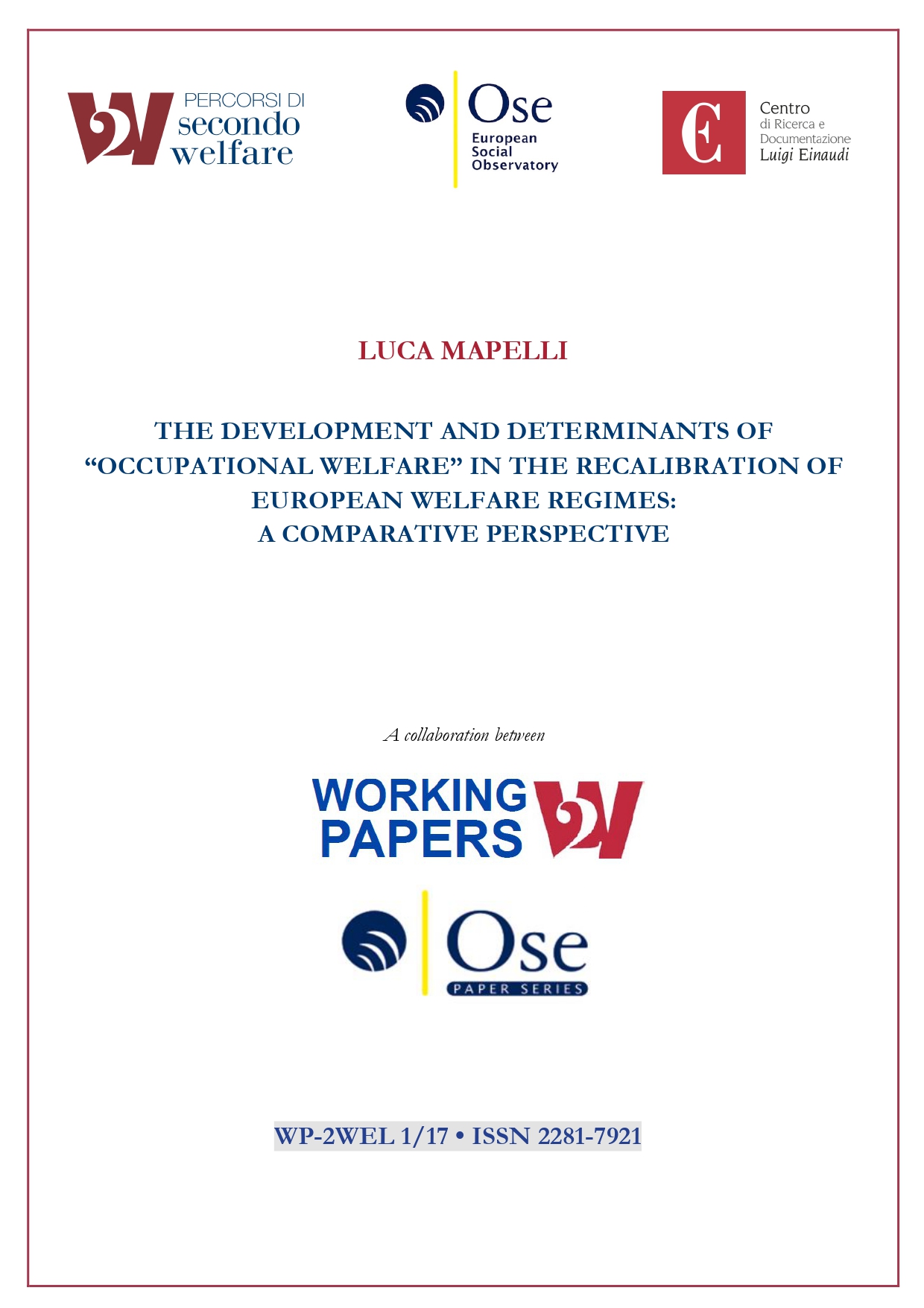The paper aims at analysing how occupational welfare has recently developed at the European level, and how well it can perform a social policy function.
The author
Luca Mapelli graduated in Master’s Economics and Political Science at the University of Milan with a comparative thesis on occupational welfare in Europe. He previously achieved his Bachelor’s Degree with a thesis on the sustainability of Japanese public debt. He worked as a research intern at the Brussels-based European Social Observatory, contributing to the PROWELFARE Project.
Abstract
Since the end of the so-called “golden age of the Welfare State”, European social protection systems have undergone a process of recalibration, which slowed down the growth of public social expenditure and, in some cases, resulted in retrenchment. Against this backdrop, occupational forms of welfare provision gained a new role in European welfare mixes. These developments involve risks as well as opportunities: while private social expenditure does not impinge on public budgets, its increasing role may result in greater dualism and fragmentation.
Building on relevant literature and current debate, the present paper aims at analysing how occupational welfare has recently developed at the European level, and how well it can perform a social policy function. In order to do so, we identified a set of relevant field-specific and country-specific factors that could help explain the extent of occupational welfare development (its quantity) and its efficacy as an instrument of social policy (its quality). The impact of such factors is observed across two policy fields – addressing old and new risks – and four European countries, representing four different types of welfare regimes. Our findings suggest that, overall, occupational welfare is becoming increasingly important in European welfare mixes; however, the quantity and quality of its development depend on a number of field-specific and country-specific variables. After having analysed the role played by such variables, we conclude that occupational welfare can retain a social policy function, provided that it is handled with care and built upon a solid public underpinning.
Referring to this publication:
Mapelli, L. (2017), “The development and determinants of ‘occupational welfare’ in the recalibration of European welfare regimes: a comparative perspective”, Working Paper 2WEL 1/2017, Torino/Brussels, Centro Einaudi and European Social Observatory, November, 29p.

